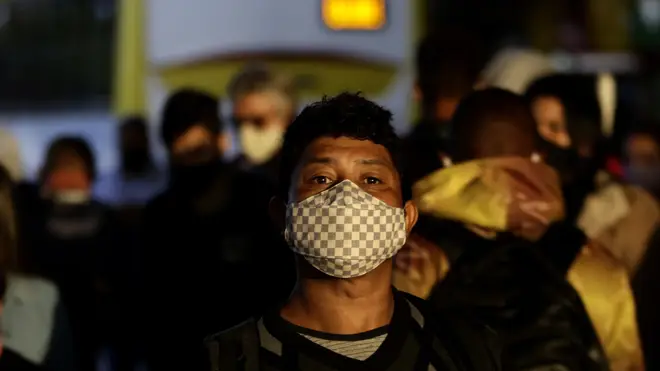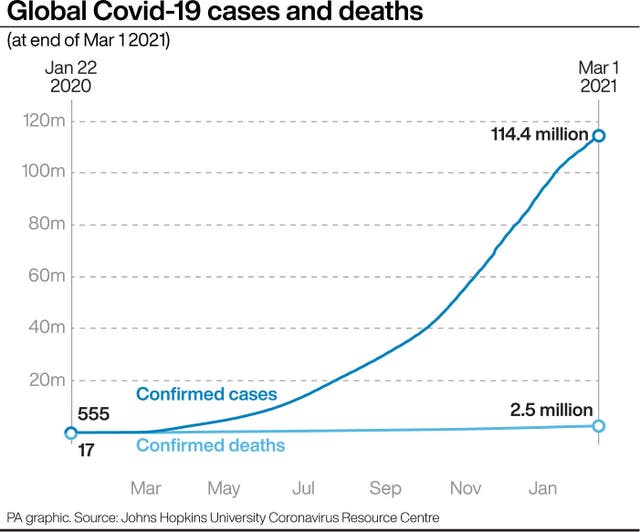
Clare Foges 6pm - 9pm
2 March 2021, 08:24

Last week was Brazil’s deadliest of the pandemic, with 8,244 deaths from the virus.
Brazilian health officials have called for nationwide lockdowns and curfews, with hospitals running short of intensive care unit beds as Covid-19 claims more than 1,000 lives each day in the country.
“The return of the pandemic in several states is making their private and their public assistance networks collapse and has brought imminent risk of spreading it to all regions of Brazil,” said the country’s National Council of Health Secretaries in an open letter.
They added that the nation is experiencing its worst moment since the pandemic began.
Last week was Brazil’s deadliest of the pandemic, with 8,244 deaths from the virus.

The letter from the council, which represents the nation’s 27 health secretaries, suggested lockdowns in cities where no ICU beds are available and curfews between 8pm and 6am in the rest.
Less than 4% of Brazil’s population has been vaccinated against Covid-19. Almost 260,000 people have died from the disease in the South American country.
Meanwhile, Colombia has become the first country in the Americas to receive a vaccine shipment from the UN-backed Covax initiative.
The programme is meant to ensure inoculations against Covid-19 for the world’s most vulnerable but has been hampered by limited global supply and logistical problems.
LIVE with @DrTedros at the arrival of the first batch of #COVID19 vaccines via COVAX to #Colombia https://t.co/ARPXBh4bLN
— World Health Organization (WHO) (@WHO) March 1, 2021
The arrival of 117,000 doses of the Pfizer/BioNTech vaccine to the capital Bogota came days after the one-year anniversary of the first coronavirus case discovered in the region.
The Pan American Health Organisation said it expects to increase regional vaccine access through the Covax effort. It plans to bring about 280 million doses to the Americas and the Caribbean by the end of the year.
Colombia – Latin America’s third largest country by population – had already began inoculations and received its first vaccine shipment in mid-February.
The government has said it aims to vaccinate 35 million people this year, including hundreds of thousands of Venezuelan migrants and refugees who are currently living in the country.